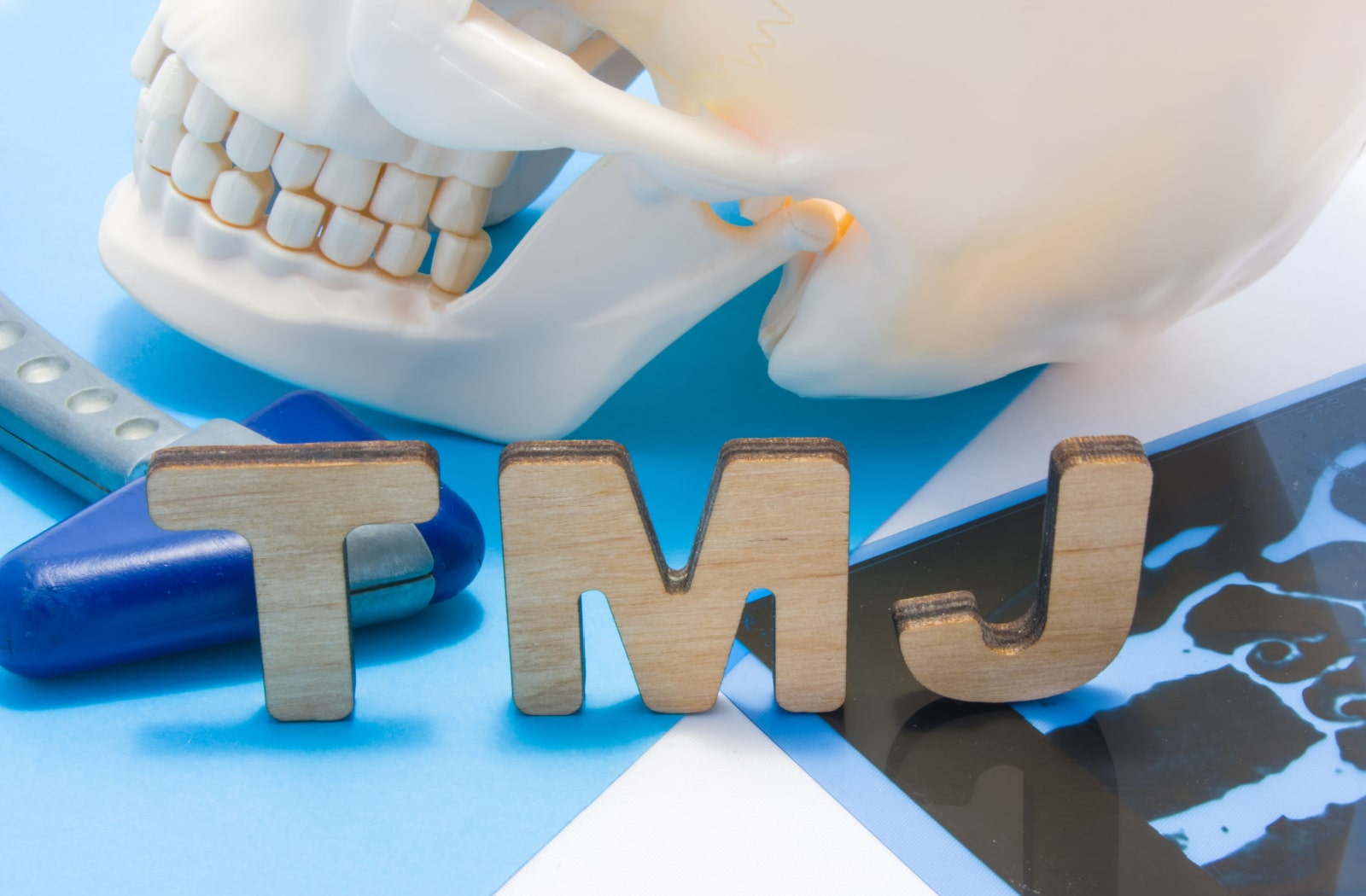If you’re experiencing constant jaw pain, having difficulty opening and closing your mouth, or experiencing clicking or popping sounds when you do, you may have temporomandibular joint (TMJ) disorder. It’s an uncomfortable disorder, and you’re not alone in your symptoms—millions of people struggle with TMJ disorder.
The symptoms associated with TMJ disorder often don’t go away on their own, but there are a range of noninvasive solutions that can alleviate common complaints. Your dentist can assess your jaw and oral health to recommend the right course of treatment for lasting relief.
What Is TMJ Disorder?
The temporomandibular joint serves as a hinge connecting your jaw with your skull. TMJ disorder is a condition that affects this joint and causes pain and discomfort. It can be related to various factors like:
- Trauma to the jaw joint
- Misaligned teeth or jaws
- Grinding or clenching of teeth
- Genetic predisposition
- Stress
If you’re experiencing pain or discomfort in your jaw area, you may have TMJ disorder and require a dental assessment.
Symptoms of TMJ Disorder
The symptoms of TMJ disorder may vary from person to person, but common symptoms include:
- Pain or tenderness in the jaw area
- Difficulty opening and closing your mouth
- Clicking or popping sounds when you move your jaw
- Chronic headaches, earaches, or tinnitus
- Pain or discomfort when eating or chewing
- Tension or spasm in the jaw area
- Difficulty sleeping
Can TMJ Go Away on its Own?
It depends. Mild cases of TMJ can sometimes go away after a few weeks or months without treatment. However, more severe cases of TMJ may require long-term management or treatment.
It’s best to consult your dentist if you’re experiencing any of the symptoms mentioned above to determine the right course of action. Ignoring the symptoms may lead to worsening of the condition and may result in chronic pain and damage to your teeth.
Treatments for TMJ Disorder
There are various treatments for TMJ disorder, depending on the severity of the condition. Your dentist may recommend a combination of treatments like:
- Self-care treatments: These can include applying heat or cold to your jaw area, gentle jaw stretching exercises, avoiding hard or chewy foods, and practicing stress-reducing techniques.
- Oral medication: These can include pain relievers, anti-inflammatory drugs, and muscle relaxants.
- Dental treatments: These can include dental nightguards to protect your teeth from grinding or clenching.
- Physical therapy: Where you’re taught exercises to help improve jaw movement and reduce pain.
- Surgery: This is a last resort for severe cases where other treatments have failed.
Can Botox Help with TMJ Disorder?
Besides traditional therapies, there is another treatment option that involves Botox injections. Botox isn’t just for esthetics—it can also be used to alleviate the symptoms of TMJ disorder.
Botox works by relaxing the muscles responsible for causing discomfort and pain in the jaw area. When Botox is injected into these muscles, it blocks the nerves that cause muscle contractions, reducing the frequency and severity of TMJ-related symptoms.
Benefits of Botox for TMJ Disorder
One of the significant advantages of Botox as a treatment for TMJ disorder is that it is minimally invasive and typically requires no downtime. Most patients experience immediate relief after the injection, with the effects lasting up to 3-6 months.
It’s also essential to consider potential side effects while weighing Botox as a treatment option for TMJ disorder. The most common side effects of Botox injections include redness, swelling, and bruising at the injection site. However, these side effects are usually temporary and subside within a few days.
Discover TMJ Treatment in East Amherst
TMJ disorder can be a painful and distressing condition. However, you can explore a range of solutions at The Ivory Dental Co.
Whether you’re interested in Botox injections as a safe and effective treatment option for TMJ disorder or want to understand your options, schedule an appointment with our dental team. During a comprehensive consultation, we’ll discuss possible treatments and mitigate the damage TMJ disorder can cause to your teeth.
Don’t live with discomfort—early diagnosis and treatment are essential to manage TMJ effectively.





